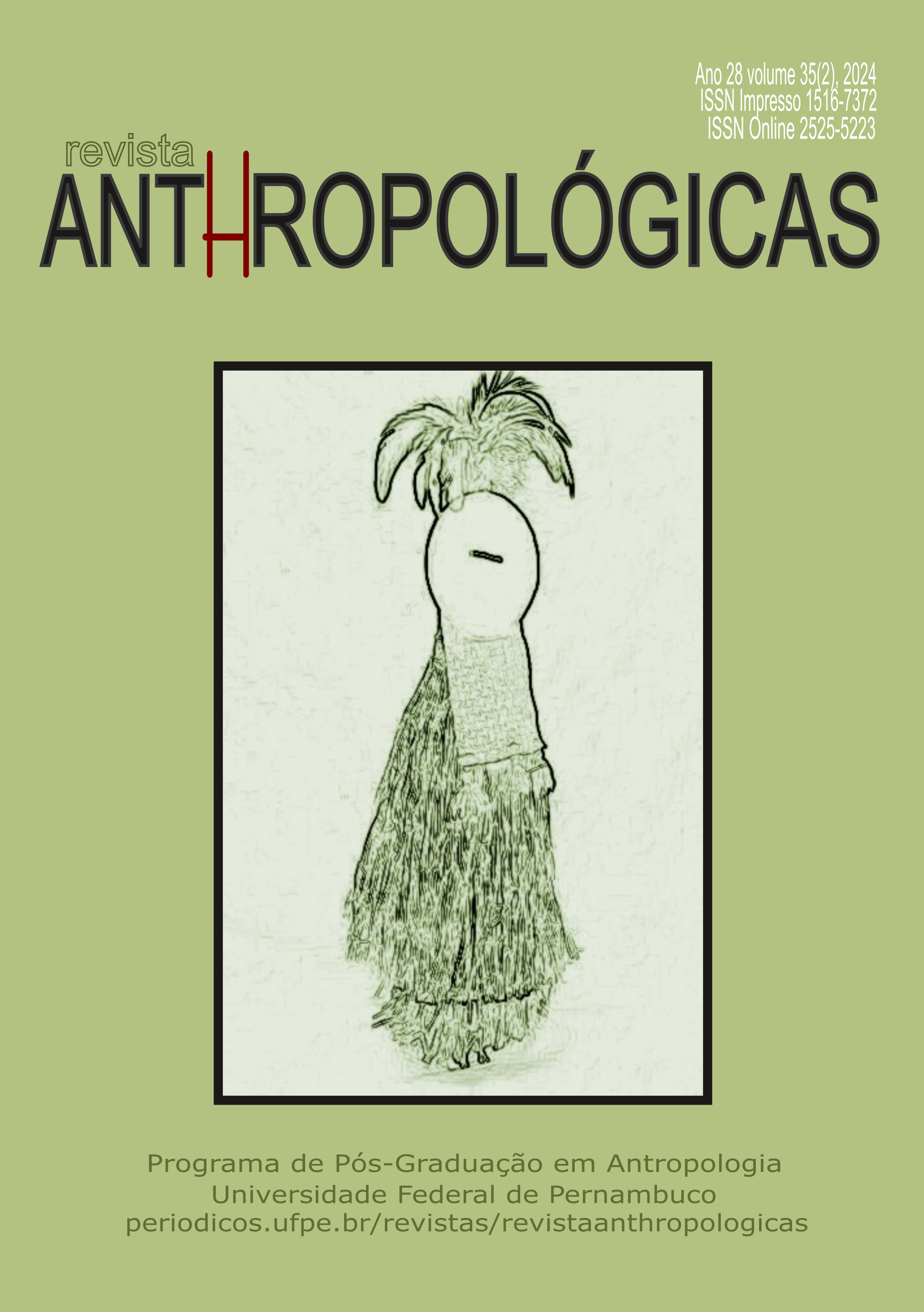Towards a New Knowledge Regime in the Anthropocene – The contribution from anthropology
DOI:
https://doi.org/10.51359/2525-5223.2024.265858Keywords:
interdisciplinarity, Anthropocene, overheating, anthropologyAbstract
The world is overheating, global civilization has reached a dead end and is negotiating an uncomfortable double bind between the imperatives of growth and the pressing need to find sustainable solutions. There is now broad consensus on the urgent need to take these challenges seriously in research, political mobilization and policy making. The question is what kind of knowledge is needed to take appropriate action. The short answer is: several kinds of knowledge. For a more elaborate answer, an additional question is needed: what knowledge? Taking the concept and metaphor of overheating to explain contemporary stagnation, this contribution shows the importance of interdisciplinarity and questions to what extent knowledge generated in the field of anthropology can contribute to the kind of enlightenment required. Should we learn from the mistakes and successes of the past, seek the necessary knowledge in the small-scale societies that still exist, or insist that modernity must resolve its contradictions by its own means, whether through some kind of world government or through technological solutions?
References
BARBER, B. (1995). Jihad versus McWorld: How Globalism and Tribalism are Reshaping the World. Ballantine.
BAUMAN, Z. (2000). Liquid Modernity. Polity. Beck, U. (2009). World at Risk. Polity.
BAER, H. (2020). Airplanes, the Environment, and the Human Condition. Routledge.
BAER, H. A. & SINGER, M. (2018) The Anthropology of Climate Change: An Integrated Critical Perspective (2nd edition). Earthscan at Routledge.
CASTELLS, M. (1996). The Rise of the Network Society. Blackwell.
CRATE, S. A. y Nuttall, M. (Eds.) (2009). Anthropology and Climate Change: From Encounters to Actions. Left Coast Press
ENGELKE, P. & MCNEILL, J. (2016). The Great Acceleration. Harvard University Press.=
ESCOBAR, A. (2008). Territories of Difference: Place, Movement, Life, Redes. Duke University Press.
HANN, C. y Hart, K. (2011). Economic Anthropology: History, ethnography, critique. Polity.
HENDRY, J. (2014). Science and Sustainability: Learning from Indigenous Wisdom. Palgrave Macmillan.
HESSEN, D. & ERIKSEN, T. H. (2012). På stedet løp: Om konkurranse i natur og kultur (‘The treadmill paradox: On competition in nature and culture’). Aschehoug.
HOFFMAN, S; ERIKSEN, T. H. & MENDES, P. (Eds.) (2020) Cooling Down. Berghahn. Hornborg, A. (2019) Nature, Society and Justice in the Anthropocene: Unravelling the Money–Energy–Technology Complex. Cambridge University Press.
ERIKSEN, T. H. (2014). Globalization: The Key Concepts (2a ed.). Bloomsbury.
ERIKSEN, T. H. (2016). Overheating: An Anthropology of Accelerated Change. Pluto
ERIKSEN, T. H. (Ed.) (2018). An Overheated World. Routledge.
ERIKSEN, T. H. y Hessen, D. (1999). Egoisme (‘Selfishness’). Aschehoug.
ERIKSEN, T. H. y Schober, E. (Eds.) (2016). Identities Destabilised: Living in an Overheated World. Pluto.
LÉVI-STRAUSS, C. (1962). La Pensée sauvage. Plon.
LÉVI-STRAUSS C. (1983). Le Regard éloigné. Plon.
MALTHUS, T. (1798). An Essay on the Principle of Population. J. Johnson.
MISHRA, P. (2017). The Age of Anger: A History of the Present. Straus and Giroux.
PIKETTY, T. (2014). Capital in the Twenty-First Century. Belknap Press. Ritzer, G. (2004). The Globalization of Nothing. Sage
ROSA, H. (2016). Resonanz: Eine Soziologie der Weltbeziehung. Suhrkamp.
SASSEN, S. (2014). Expulsions. Brutality and Complexity in the Global Economy. Belknap Press. Scranton, R. (2015). Learning to Die in the Anthropocene: Reflections on the End of a Civilization. City Light Books.
SHORE, C. y Trnka, S. (Eds.) (2013). Up Close and Personal: On Peripheral Perspectives and the Production of Anthropological Knowledge. Berghahn.
SNOW, C. P. (2019 [1959]) The Two Cultures. Cambridge University Press.
SÖRLIN, S. (2017) Antropocen. En essä om människans tidsalder. Weylers.
STEFFEN, W., Crutzen, P. y McNeill, J. (2007) The Anthropocene: Are Human Beings Now Overwhelming the Forces of Nature? AMBIO, 36(8), 614–21.
STENSRUD, A. B. y Eriksen, T. H. (Eds.) (2019) Climate, Capitalism and Communities. Pluto. Strathern, M. (1992). After Nature. English Kinship in the Late Twentieth Century. Cambridge University Press.
TAINTER, J. A. (1988). The collapse of complex societies. Cambridge University Press.
TAINTER, J. A. (2008). Collapse and Sustainability: Rome, the Maya, and the Modern World. Archeological Papers of the American Anthropological Association, 24.
VETLESEN, A. J. (2020) Cosmologies of the Anthropocene. Routledge.
WALLERSTEIN, I, et al. (1996) Open the Social Sciences. Report of the Gulbenkian Commission on the Restructuring of the Social Sciences. Stanford University Press.
Downloads
Published
Issue
Section
License
Copyright (c) 2025 Revista Anthropologicas

This work is licensed under a Creative Commons Attribution-NonCommercial-NoDerivatives 4.0 International License.
Direitos Autorais para textos publicados na Revista ANTHROPOLÓGICAS são do autor, com direitos de primeira publicação para a revista.
Authors retain the copyright and full publishing rights without restrictions.


